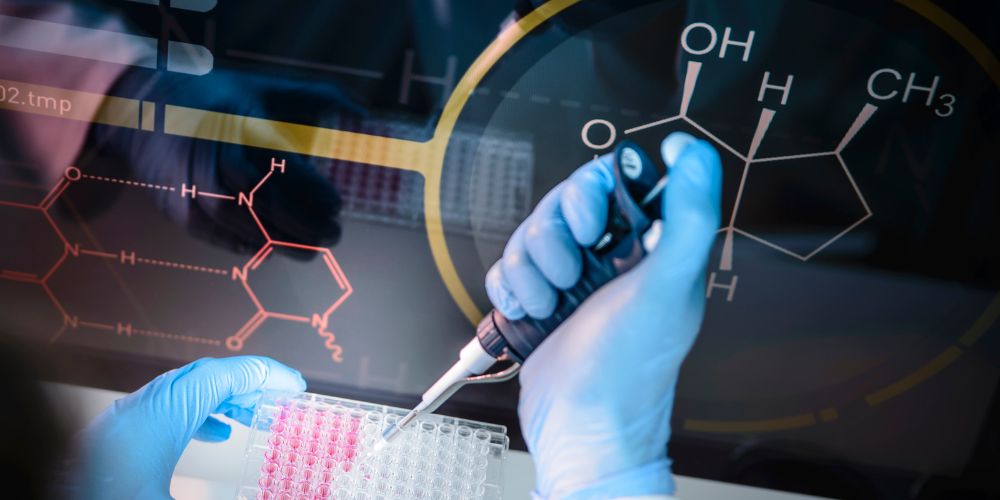Discovering the Benefits of Biocomp Labs: Exploring Biocompatibility Testing

Discovering the Benefits of Biocomp Labs: Exploring Biocompatibility Testing
Biocomp Labs is a leading provider of biocompatibility testing services, offering a test to help ensure the safety of materials used in the dental industry. In this article, we will explore the history, technique and benefits of Biocomp Labs and discuss the importance of biocompatibility testing in dentistry.
Introduction and History of Biocomp Labs
Biocomp Labs is a company founded in 1984 by Dr. Hal Huggins (as Huggins Diagnostic Center) and then taken over in the early 21st century by Dr. Blanche Grube, two pioneers in the field of biological dentistry.
Dr.Hal Huggins was an American dentist who is credited with being the founder of the modern practice of biological dentistry. Dr. Blanche Grube is also a dentist, dental researcher and Doctor of Integrative Medicine, who has been involved in the development of biocompatibility testing protocols.
The vision by Dr. Huggins was to have a test that would inform the dentist which dental materials would be best suited for their patients, prior to the patient undergoing a Full Dental Revision.
What is biocompatibility testing?
The testing process is used to determine the safety of a material by evaluating the reaction of a person’s immune system to specific dental components. It is an invitro test meaning, the dental component is mixed with the persons serum within a test tube. The process begins with blood being drawn from a person’s arm and placed into several test tubes.
These test tubes are then placed into a centrifuge machine. This machine spins around at very high speeds causing the heavier red blood cells to settle at the bottom of the test tube leaving the lighter serum, which houses the white blood cells, to settle at the top half of the test tube.
The serum is then poured into a smaller test tube, frozen solid and then shipped overnight to Biocomp Laboratories in Colorado Springs. Once the serum arrives at the laboratory it is then mixed drop by drop into the test tubes holding the dental components. After a period of percussing, the test tubes are then placed into a Light calorimeter.
The amount of light that passes through the test tube gives the scientist an appreciation for what is going on in the test tube. If the dental material is one which the immune system (white blood cells) is highly reactive to, then those cells will produce protein. This is why it is called a “protein precipitation test”.
This excreted protein causes the cells to “clump” together and therefore not permitting much light to penetrate and travel across the test tube to the other side. If the dental material is one with which the persons immune system does not react much, then most of the light will pass through to the other side. The light machine is highly technical and sensitive, providing an exact number to the amount of light being detected, producing reliability and accuracy.
The numbers produced are then placed into a computer algorithm and a report is produced.
Benefits of Biocomp Labs
It simply makes good sense to a person getting ready to have dentistry done, that they have a compatibility test done first. To give an analogy; you certainly would not go into a restaurant and flippantly order anything on the menu if you had several food allergies.
Suppose it was a French restaurant and you had an allergy to dairy? The rest of the evening would not go well at all. In fact, if the allergy is severe enough, it just might be your last meal.
Sensitivity to dental materials is slightly different in that the symptoms may not show themselves in an obvious way or they may take years to show at all.
Knowing that the dental materials in your mouth are not disturbing your immune cells is not only comforting, it is one of the best things you can do to insure long term health.
Benefits biocompatibility testing in dental materials
Biocompatibility testing is an important part of the practice of dentistry, as it helps to ensure the safety and effectiveness of dental materials. The tests are used to evaluate the compatibility of materials used in dental applications, such as composites, resins, orthodontic metals, implants, prosthetics(crowns and bridges) and materials used in dentures.
Conclusion
Biocomp Labs is a leading provider of biocompatibility testing services, offering a test to help ensure the safety of materials used in the dental industry. In this article, we explored the history and benefits of Biocomp Labs and discussed the importance of biocompatibility testing in dentistry.
Biocompatibility testing is essential for the safety and effectiveness of dental materials, and Biocomp Labs is committed to providing accurate and reliable results.
Learn more about biocompatibility testing and purchase your test at www.BiocompLabs.com.
